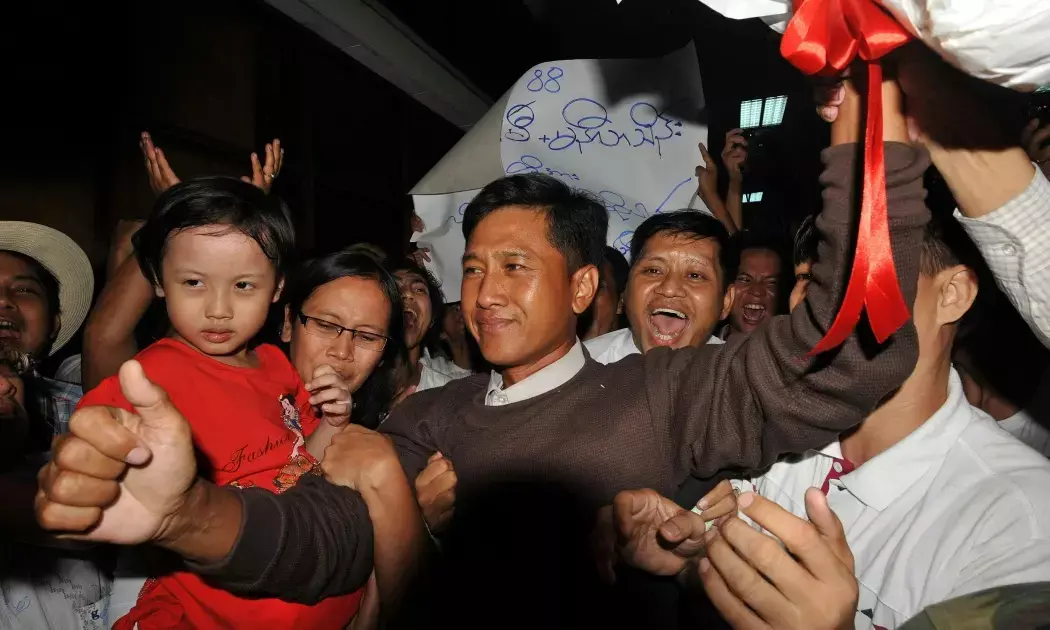UNSC Condemns Executions of Activists in Myanmar, Needs to Do More
Sanctions on Myanmar needed
The Myanmar regime has done the unthinkable. And the indefensible. Even by its own low standards. It has executed four activists, ignoring global pressure and refusing to respond to pleas from humans across the world. The executions come after an almost five decade hiatus, with student leader Salai Tin Maung Oo killed in 1976 by another military dictator Ne Win.
The four executed now include a former leader from Aung San Suu Kyi's party, Phyo Zeya Thaw who was better known as a hip hop musician before he joined the Generation Wave movement; Kyaw Min Yu, also a veteran of the 1988 popular uprising against military rule; Hla Myo Aung who was jailed for reportedly killing a woman last year; and Aung Thura Zaw who was seen as an informer. The military junta predictably slapped terror charges on the executed, who were described as rights champions by democratic groups. Myanmar's military insisted on television that the four activists had "killed at least 50 persons" and were being executed to prevent such incidents from taking place. Namely the widespread protests across Myanmar against the military junta. Elaine Pearson, acting Asia director of Human Rights Watch said, "the junta's barbarity and callous disregard for human life aims to chill the anti coup protest movement."
The pressure has worked to push the United Nations Security Council to issue a resolution condemning the executions. The resolution has been approved by all 15 member nations, including China and Russia, and has called for the release of all arbitrarily detained prisoners including President Win Myint and Aung San Suu Kyi.The resolution further calls for dialogue and reconciliation "in accordance with the will and the interests of the people of Myanmar" along with an immediate halt to all violence, respect for human rights and full aid access. Even Cambodia that is seen as close to the junta had pleaded with the military government not to go ahead with the executions earlier.
Myanmar's dismissive approach to the strong condemnation pouring in from different parts of the world has led peace rights activists to fear more such executions.According to HRW 114 persons have been sentenced to death since the military took over power in Myanmar in February last year. It is clear thus that the world will have to increase the pressure on the military junta to refrain from further executions, and pressure it to release all political prisoners. India, being an important neighbour can play an important role, more so as it has retained relations with the junta and cemented these in recent times with a visit by the Foreign Secretary. New Delhi's argument for continuing relations with Myanmar has been the increasing footprint of China in the region, as well as concern about its north east borders. Ironically sanctions were imposed on several generals ranging from travel bans and freezing of assets abroad by the anti-China conglomerate of US, UK, EU, Canada and Australia following the coup. And China and Russia at that time had opposed sanctions on Myanmar as a country, following which the UNSC did not discuss the issue but just called on the junta to release all prisoners and refrain from violence.
This time around the condemnation resolution has been unanimous in the UNSC, and could well be followed by more crippling sanctions on the currently defiant Myanmar. This behavior is absolutely unacceptable and the governments of the world will have to follow up on the UNSC resolution with more stringent action. It is good to note that even those nations seen as supportive of Myanmar have spoken out, making it clear that executions of political activists is not acceptable.ASEAN has tried to engage with Myanmar with no result but fortunately QUAD has shown much less tolerance. This will have to move now into complete condemnation with active sanctions not just on some generals but Myanmar as a whole.





